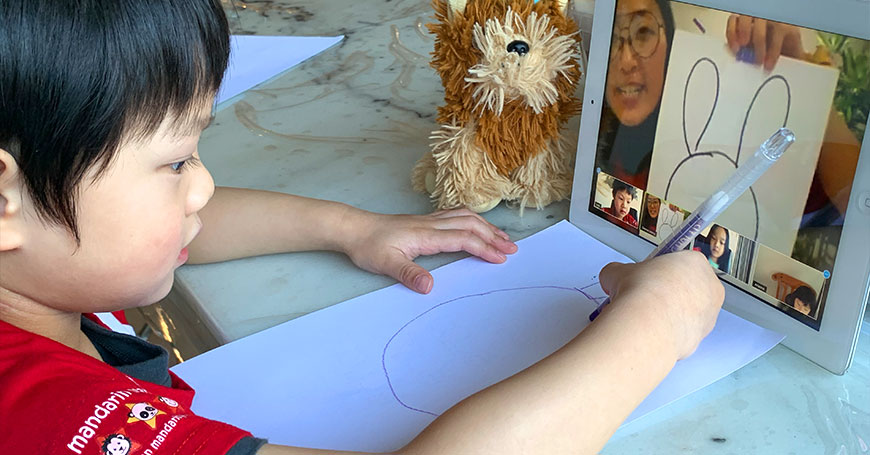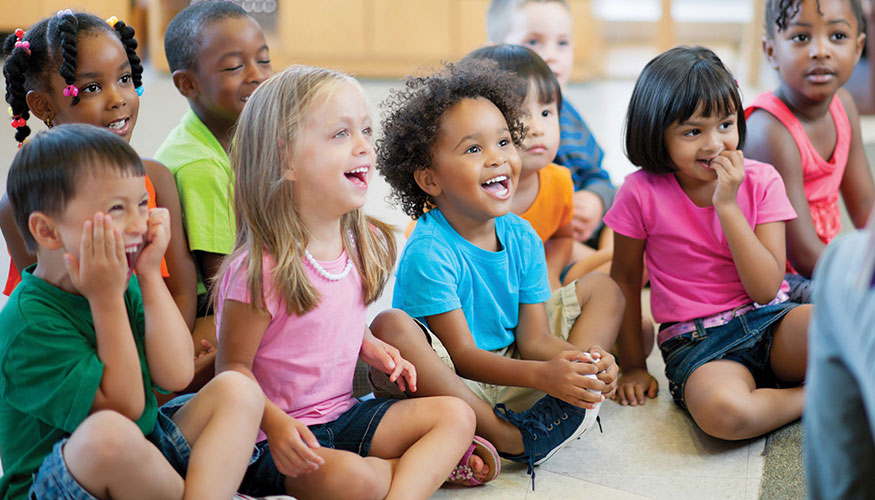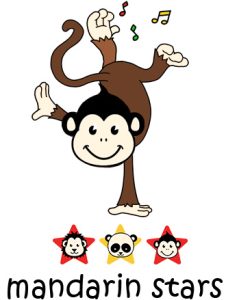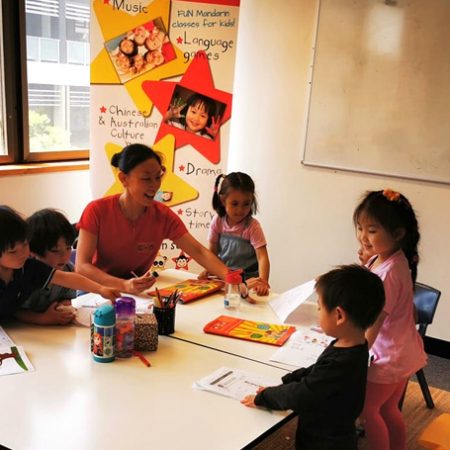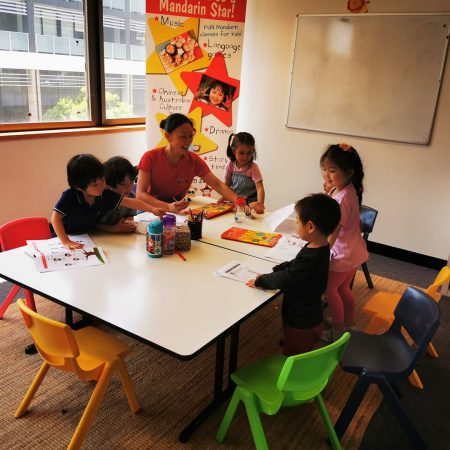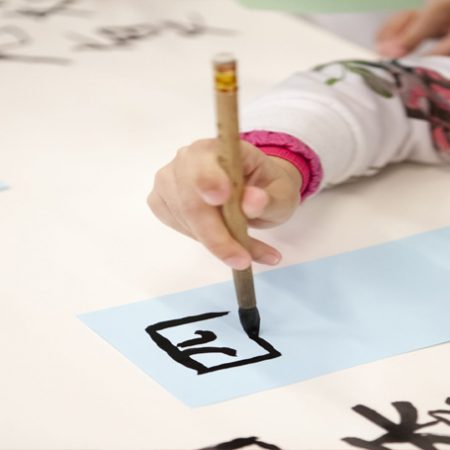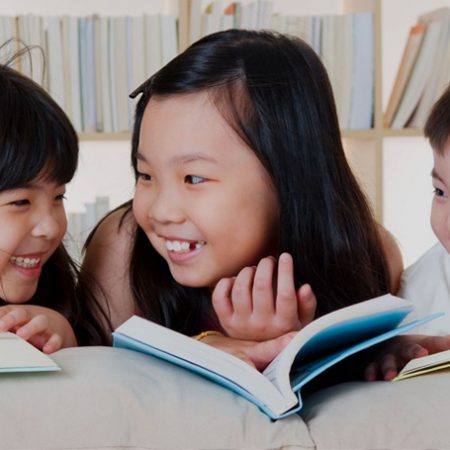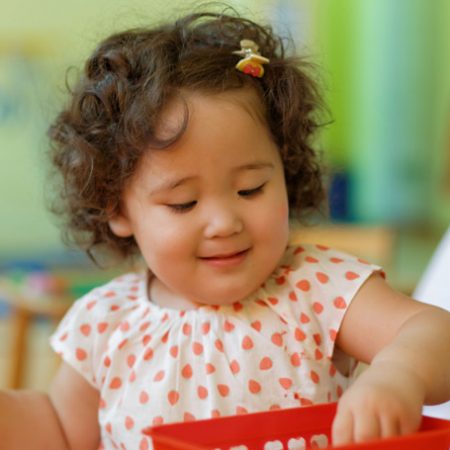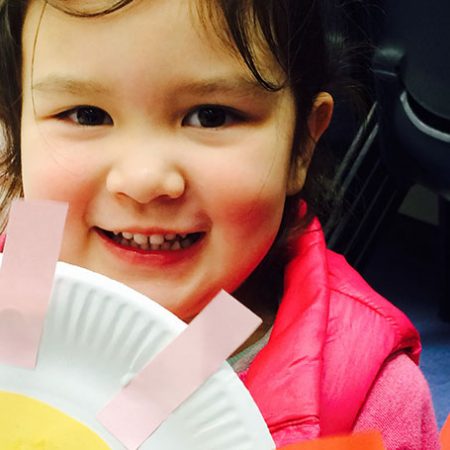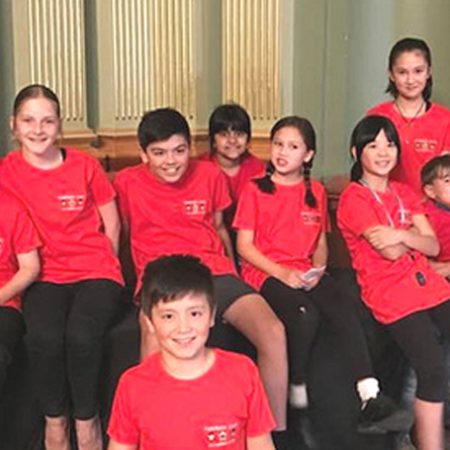Mandarin Stars Programs
Our program delivers proven results and is loved by children and recommended by both parents and educators.
On a deeper level, our program mission is to:
- Motivate engaged, confident and capable learners who can ultimately communicate and develop meaningful connections with others.
- Develop and flourish the bilingualism, and, or multilingualism in each and every child.
- Cultivate in our students a sense of pride and achievement in being able to identify, communicate and connect with both the local and wider global community.
- Support Goal 2 of the Melbourne Declaration on Education Goals for Young Australians, that:
All young Australians become:
- Successful learners
- Confident and creative individuals
- Active and informed citizens.
All of the activities we plan and deliver place our students at the centre of our pedagogical approach and we choose a range of activities to deliver our themes, including:
- sensory-based play
- workbook activities that develop listening, speaking, reading and writing skills in Mandarin, as well as the introduction and practical application of both early and primary years numeracy and literacy-based concepts
- short stories,
- rhymes, singing,
- dancing, movement and yoga
- ‘mini Mandarin science time’ to develop early years science inquiry and concepts skills
- puppet shows,
- dramatic play and
- arts and crafts.
The activities we choose to teach Mandarin in our classes also develop overall cognitive and thinking skills as students learn and practice play-based numeracy and problem-solving tasks in Mandarin. We also consistently aim to reinforce and consolidate learning and develop in your child a strong sense of confidence and a “Can do… can learn…. can speak” attitude in our students so that as they mature and go on to learn Mandarin in their teenage years- they are confident, capable and knowledgeable Mandarin Chinese learners and communicators.
Your child’s learning journey with Mandarin Stars develops both a love for and an inquiry-based approach to learning. Our young learners start to lay the foundations to be successful communicators, successful learners and open-minded citizens. They also learn an extensive range of vocabulary along with a broad range of phrases and sentence structures related to self-introduction topics and child-centred themes, and also the basic introduction of reading and writing Chinese characters in a fun and immersion-based Mandarin Chinese language setting.
At what age should my child start to learn Mandarin?
By exposing your child to Mandarin lessons at an early age, you can lay the foundations for fluency in Mandarin as they grow and develop. Kids have an incredible ability to learn languages at a young age. The ability to effortlessly absorb a new language begins to decline by age six, according to Robert DeKeyser, a professor of second-language acquisition at the University of Maryland.
Many articles and experts recommend that every child under the age of 15 years should learn Chinese, as speaking the language is key to understanding the complex cultural and political nuances of doing business in and with China.
If you would like to read more articles and research on when and how to teach your child Mandarin, please take a look at some of the independent articles posted on our blog.
We choose a range of activities to deliver our themes, including:
-
sensory-based play
-
short stories,
-
rhymes, singing,
-
dancing, movement and yoga
-
puppet shows,
-
dramatic play and
-
arts and crafts.
All of the activities we plan and deliver the place our students at the centre of our pedagogical approach. We also consistently aim to reinforce and consolidate learning, and also develop in your child a strong sense of confidence and a “Can do… can learn…. can speak” attitude in our students so that as they mature and go on to learn Mandarin in their teenage years- they are confident, capable and knowledgeable Mandarin Chinese learners and communicators.
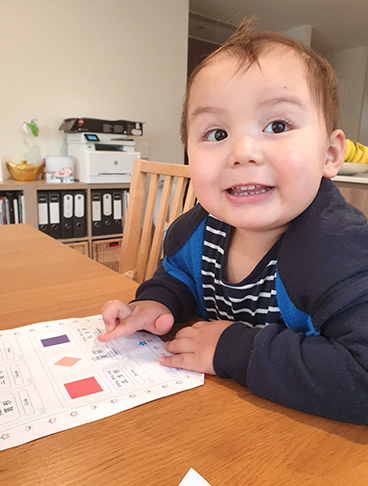
How does my child benefit from the Mandarin Stars program?
- Learning a language like Mandarin will give kids a competitive edge. China is Australia’s largest trade partner and is a rising economic superpower. Children who are able to speak Mandarin as a second language will have an advantage in an increasingly competitive job market.
- Learning about another culture through fun activities is the best way for kids to learn
Our programs are child-centric, with activities that are designed to grow the child’s vocabulary and conversational skills in Mandarin in a fun and interactive environment. Children love our programs, but they are also designed to deliver proven results! - Improving memory, language skills and cognitive ability
Research shows that learning a second language improves a child’s overall cognitive ability, memory, creativity and literacy. - Learning a second language is easier for their brain to absorb at a younger age
Research shows that children are best able to learn a second language before the age of 6. It is also easier to learn the correct “accent” of the language. The old saying is true – “a child’s brain is like a sponge”! - Communicating and deepening connections with Chinese friends and relatives
Your child will develop the confidence to have conversations with Mandarin-speaking friends and relatives, deepening their bonds and connections. Being able to read the menu in a Chinese restaurant is exciting too! - Broadening their experience beyond typical extracurricular activities such as sport and music
Learning a second language allows your child to develop more holistically. Many parents are seeking opportunities to enrich their children beyond typical extracurricular activities such as sport, music or performing arts.
